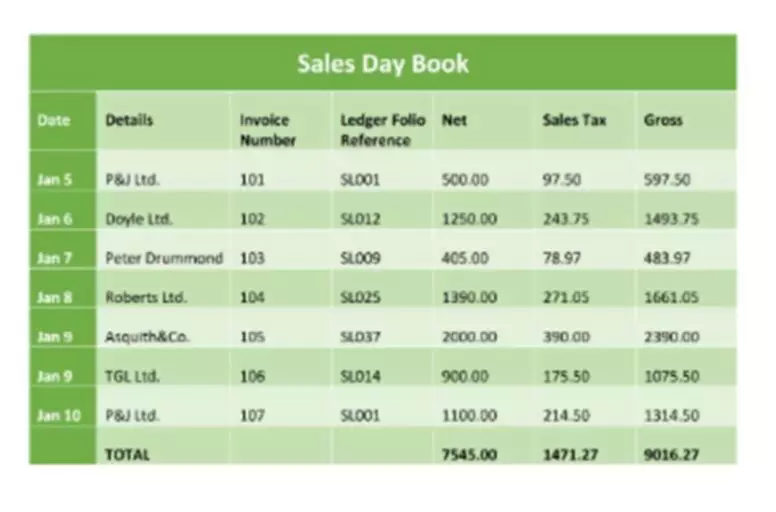Content
- Time management
- Optimization of Internal Processes
- How to engage with a fractional CFO
- Is Your Business Ready for a Fractional CFO?
- Advantage #2: it brings in a wide range of finance and accounting knowledge and skills into the company
- The benefits of being a fractional CFO
- #5 You Want to Change Your Company’s Legal Structure
- Pros/cons of a controller

A fractional CFO is more than a high-level accountant or glorified controller. Unfortunately, these crucial decisions can be clouded by the biases and assumptions of individual executives. Here are some business planning areas where a fractional CFO can be a valuable strategic player.
This level of independence allows you to be the CFO maverick, forging your own path in the financial world. In most cases, the business using the CFO service will not also have an in-house CFO. However, there could be cases where a business with an in-house CFO may bring in external support for heavy lifting with big projects or events, such as an audit. New Life CFO sources contractors with a wide variety of industry experience who have served at least ten years as full-time CFOs. If your company needs help with your financial big picture, we’re happy to discuss your needs. A Fractional CFO does all the same things as a full-time CFO, but the scope of work can be tailored to the specific needs of a company.
Time management
Here, we break down everything you need to know about fractional CFOs, the benefits and drawbacks of enlisting one, and some common scenarios that might demand their expertise. However, new challenges are part and parcel of the growth process, and you will need as many tools as possible to help you overcome hurdles as you scale. Fractional Chief Financial Officers (CFOs), also known as virtual CFOs, are becoming more popular for businesses to use.

In either role, it’s crucial to find someone who aligns with your company’s culture and values. Ultimately, hiring a CFO vs Controller is about finding the right candidate for your company’s specific needs. When hiring for a CFO or Controller position, you must look for candidates with the necessary experience and skills to thrive in the designated position, leading to a functional accounting department structure. Candidates should have a proven track record of success, strong communication, leadership, and analytical skills.
Optimization of Internal Processes
These talented professionals are redefining what it means to be a CFO in the modern business world, bringing flexibility, expertise, and innovation to the table. Of course, developing a solid services agreement isn’t something you should do alone. It’s important to work with an attorney who can help you navigate the legal complexities and tailor the agreement to your specific needs.
- This can include taking on consulting or advisory roles, or even volunteering your services to non-profit organizations.
- They almost always provide off-site assistance, working with a financial services provider to lend their accounting expertise to various businesses.
- They also bring the expertise of an experienced professional at a fraction of the cost, giving growing businesses access to high caliber professionals without breaking the bank.
- These responsibilities require a high level of training and focus, and trying to handle them on your own can expose your business to several risks.
- On the other hand, an outsourced or fractional Controller is the head of accounting and oversees the preparation of balance sheets, income statements, and other financial reports.
- A fractional CFO may serve as a turnaround specialist to improve cash flow and profitability and obtain additional financing.
The types of fractional CFO services provided by a professional Chief Financial Officer depend on whether the part-time CFO is working alone or affiliated with a business. A part-time CFO business offers more CFOs to choose from and other independent contractors for hire, including a bookkeeper, financial professionals, and controller to perform accounting services. Once you have a fractional CFO on your startup’s team, you can rest easy and let your startup’s CFO do the worrying when it comes to finances.
How to engage with a fractional CFO
As a comparison, A full-time CFO’s salary will vary depending on the industry and location but averages at a base of $200,000 per year. So when factoring in bonuses, benefits, equity, and overhead — you could be looking at over $300,000-$400,000 annually. That means hiring a CFO on a part-time basis can easily deliver over 50% in cost savings.
What should I look for in a fractional CFO?
- Cash runway / management.
- Strategic planning.
- Financial modeling and analysis.
- Cap table planning.
- Fundraising strategy and support.
- Board / investor support – KPIs, Board Deck assistance, etc.
- Mergers and acquisitions.
Fractional CFOs can also provide guidance and support on using their financial models effectively and making the most of the insights they provide. Fractional CFO services can provide critical support if your organization wants to raise funds. They can help by developing financial projections, building reports, and creating presentations for potential investors. These financial documents are key during fundraising rounds because they all depict your startup’s present and expected future performance. They can also help you identify your business’s most appropriate funding sources and assist with fundraising.
Since every business is unique, it may not make financial or strategic sense to hire a full-time Chief Financial Officer (CFO), a fractional CFO can be a great option. A
fractional CFO has the level of experience and skillset of a full-time CFO but offers their services on a part-time or project basis. From financial reporting and planning, to cash flow management, budgeting, forecasting and more. With the guidance of a fractional CFO, your business can grow, operate smoothly, and make strategic decisions with confidence.
What is the difference between fractional and outsourced CFO?
A fractional CFO is a type of outsourced CFO—but, they do not provide full-time services. All fractional CFOs are outsourced, but not all outsourced CFOs are fractional. Fractional CFOs can perform virtually any CFO duties, and they are available for: Part-time work.
Having a fractional CFO on your team can be incredibly helpful when making financial decisions. The amount of financial data companies require, and track can be overwhelming. Instead of getting lost in the numbers, you can focus on making data-backed decisions based on what your fractional CFO provides. A fractional CFO service can handle all your finance and accounting needs, including the CFO.
Advantage #2: it brings in a wide range of finance and accounting knowledge and skills into the company
A fractional CFO works with companies to steer financial decisions in a direction that ensures good financial health. However, this is traditionally on a part-time basis only (and at a fraction https://www.bookstime.com/articles/fractional-cfo of the cost of hiring a full-time employee). It is a cost-effective way for small businesses to utilize professional finance and accounting without the commitment of a full-time hire.
- However, you also need to multiply the FTE CFO by an expected percentage for payroll taxes (usually 6-8%), contractual bonus (potentially 15-20%), benefits (5-10%), and other benefits or stock incentives (varies).
- As the company’s needs grow, the bookkeeper who can produce financial statements may not be skilled enough to produce a finance model or cash flow forecast.
- You might hire a fractional CFO for a one-time project, or you may wish to set up a retainer arrangement so you can receive their advice regularly.
- A fractional CFO can unburden the CEO and senior management of these requirements while assuring external stakeholders that the task is being handled appropriately.
- Scaling up or down is a lot easier, especially if you set minimum and maximum hours within the contract.Overall, a contracted fractional CFO generally comes with less hassle.
- Additionally, not having a dedicated CFO can prevent your business from accessing the financing and investment opportunities it needs to grow.
- As a comparison, A full-time CFO’s salary will vary depending on the industry and location but averages at a base of $200,000 per year.
Because they bring in a set of expert skills and knowledge, the activities usually can be conducted with minimal guidance from the company’s executive team. In fact, those in the fractional CFO or Controller position oftentimes find themselves helping to manage other departments and setting infrastructure on behalf of the company. After a more than 20-year career as a full-time CFO and in other financial leadership positions, he had an “aha moment” when taking a CFO role with a small, early-stage software company. “I was the controller, the accounting manager, and the payroll manager.” But he wanted to just focus on the strategic part of being a CFO, he says. “I thought it might be really interesting to be the CFO of multiple companies simultaneously,” DeGolier says. “I gravitated toward the flexibility of working in different industries and with different cultures,” he explains.
The benefits of being a fractional CFO
CFO Hub provides fractional CFO services for businesses ready to take their brand to the next level. We offer full-scale financial services to companies of all sizes, assisting with responsibilities including routine bookkeeping, audit preparation, regulatory compliance, and controller services. On the flip side, the benefit of engaging with a fractional CFO or Controller with a wider range of experience means additional perspectives from additional angles. Executive management teams can benefit from seeking strategic and key guidance from a seasoned fractional CFO. As companies grow and become increasingly more laser-focused on their products, delivery of services, sales and marketing and customer service, oftentimes it comes at the cost of their financial health. Having that counterbalance and voice from a financial perspective allows the company to operate and grow from a more balanced and mindful place.

